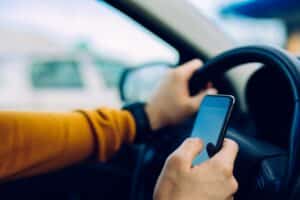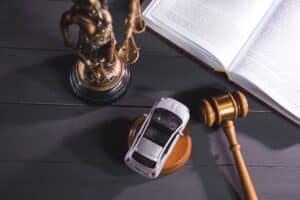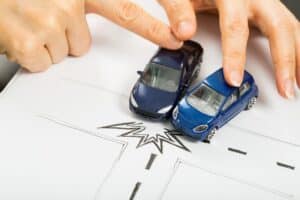Distracted driving is a major road safety issue, especially in Seattle, and the number of accidents caused by distracted driving is on the rise. In Washington State, you are prohibited from texting and driving or using a hand-held device. Still, many people in Seattle are seen texting or talking on phones while driving, and the behavior is getting dangerous.
On average, distracted driving leads to nine deaths every day in the U.S. Every year, distracted drivers cause about a million accidents. These crashes resulted in around 3,000 deaths and many more injuries. These numbers show the importance of being aware of the dangers of distracted driving. In this article, we’ll explain Washington’s distracted driving laws and ensure victims of accidents are aware of their rights and obligations.
Distracted Driving Laws in Washington
In Washington State, there are specific laws regarding distracted driving. Here’s what they say:
- Using a Personal Electronic Device While Driving (RCW 46.71.672):
a. Drivers are not allowed to use a hand-held personal electronic device, like a cell phone while driving. This also applies when you are stopped at a traffic light.
b. You may use a hands-free device for phone calls, but activities like texting, making calls without hands-free, or watching shows on Netflix are not allowed. - Dangerously Distracted Driving (RCW 46.61.673):
a. This law bans any activity that diverts your attention from safely driving your vehicle.
b. It doesn’t specify particular distractions, so almost anything (from eating to chatting with passengers) could be considered a violation if it compromises safe driving.
Always keep up to date on the latest changes to these laws, as they may be updated periodically to include new technology.
Can I Ever Use My Cell Phone While Driving?
While the default is to avoid using your cell phone when driving, there are exceptions:
Dialing emergency services (like 911) is allowed.
Minimal finger actions like swiping to accept/decline a hands-free call are permissible.
Commercial drivers may use their phones if it’s essential for their job.
Emergency service personnel are exempted from this restriction.
However, even if you’re at an intersection, texting or browsing social media on your phone is not allowed. If it’s important to check your phone, find a safe spot to pull over first.
Penalties for Distracted Driving
If you’re driving in Washington, it’s essential to be aware of the penalties for distracted driving:
- First Offense: Using your phone while driving can result in a fine of at least $136 for the first ticket.
- Second Offense: A subsequent ticket within five years is even pricier, costing you at least $234.
- Other Distractions: Activities like grooming, eating, smoking, or reading that interfere with safe driving can also lead to a $99 ticket, especially if you’re pulled over for another traffic offense.
- Insurance Implications: Keep in mind that cell phone violations are reported to insurance companies, which could impact your premiums.
Staying focused on the road not only ensures your safety but also helps you avoid these penalties. Safe driving is always the best choice.
Compensation for Victims of Distracted Driving Accidents in Washington
Distracted driving accidents can have severe consequences, and victims are entitled to pursue legal remedies in Washington State. If you or a loved one has been affected by such an accident, understanding the damages you might recover can help guide your next steps.
- Economic Damages: These cover out-of-pocket costs resulting from the accident. For distracted driving accident victims in Seattle and Washington, they might include:
a. Medical Expenses: Treating injuries from a distracted driving accident can be costly, ranging from emergency room visits to long-term medical care.
b. Long-Term Care Costs: Some injuries may not heal quickly and could require ongoing medications, therapies, and surgeries.
c. Adaptive Equipment and Home Modifications: Severe injuries may necessitate the use of assistive devices or home adjustments.
d. Physical Therapy: Many victims require therapy to regain movement and strength muscles after their injuries.
e. Property Damage: Distracted driving accidents often lead to vehicle damage, sometimes necessitating vehicle repairs or replacements.
f. Lost Wages: Recovery time might mean missing work, leading to a loss of income. - Non-Economic Damages: These are intended to compensate for the intangible effects of an accident. They include:
a. Pain and suffering: The physical and emotional trauma experienced as a result of the accident.
b. Impact on Personal Relationships: This might encompass loss of companionship or strain on familial relationships.
c. Quality of Life Degradation: The inability to partake in previously enjoyed activities or a diminished overall life experience due to injuries.
Understanding Non-economic Damages
- What are non-economic damages?
- They are compensation for intangible losses, like pain and suffering or decreased quality of life, which don’t have a direct monetary value like medical bills or lost wages.
- How are they calculated?
- The calculation can be complex because it’s not based on straightforward numbers. Instead, it considers subjective elements like emotional trauma.
- What’s the cap in Washington?
- There’s a limit to how much one can claim for non-economic damages in the state. This limit is set at 43% of the average annual wage in Washington.
- How does life expectancy factor in?
- The 43% mentioned above is multiplied by the victim’s expected years of life remaining. There’s a stipulation that this life expectancy can’t be considered as less than 15 years, regardless of the victim’s actual age or health.
- What about punitive damages?
- These are damages meant to punish the wrongdoer rather than compensate the victim. In Washington, it’s a general rule that punitive damages aren’t awarded in car accident cases.
If you’re seeking non-economic damages in Washington, it’s essential to understand these constraints and consider seeking legal guidance to navigate them.
NBF Accident Law: Your Advocate in a Personal Injury Law
At NBF Accident Law, we’re more than just a firm; we’re a commitment. Our history showcases our determination to tackle challenges and secure victories for our clients. But our service extends beyond justice. We pride ourselves on understanding, compassion, and the personal touch we bring to every interaction.
Distracted driving is a menace on Seattle and Washington roads, and we’re here to help. Don’t face this ordeal alone. If a distracted driver has impacted you, reach out to NBF Accident Law for a free consultation at (206) 923-8888. Stand strong with us advocating for you.





